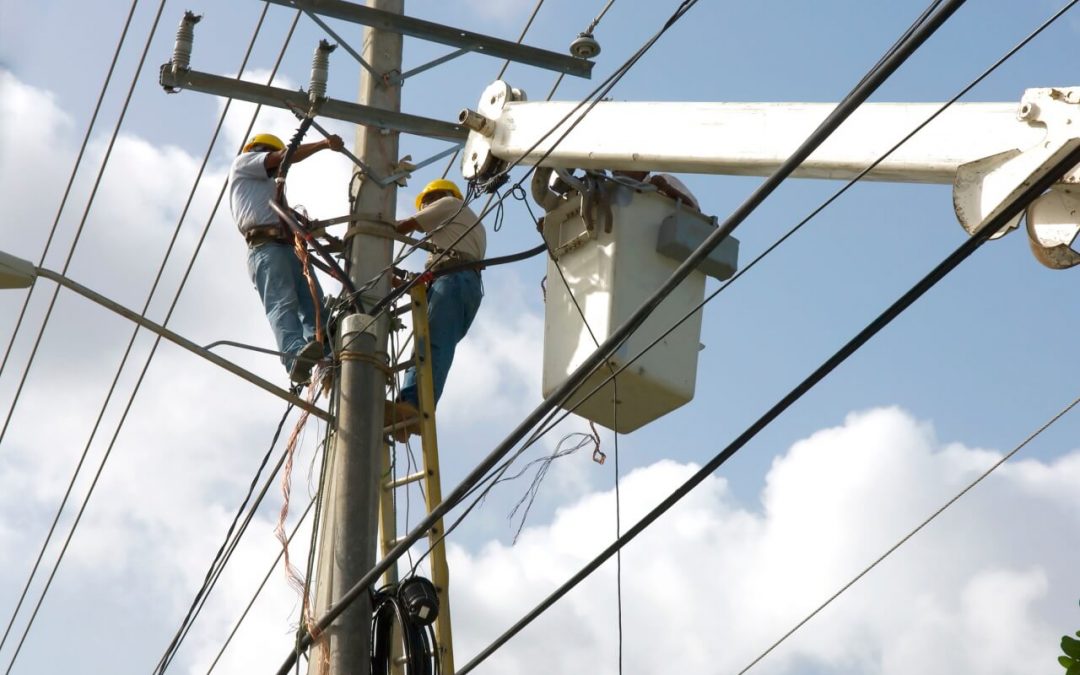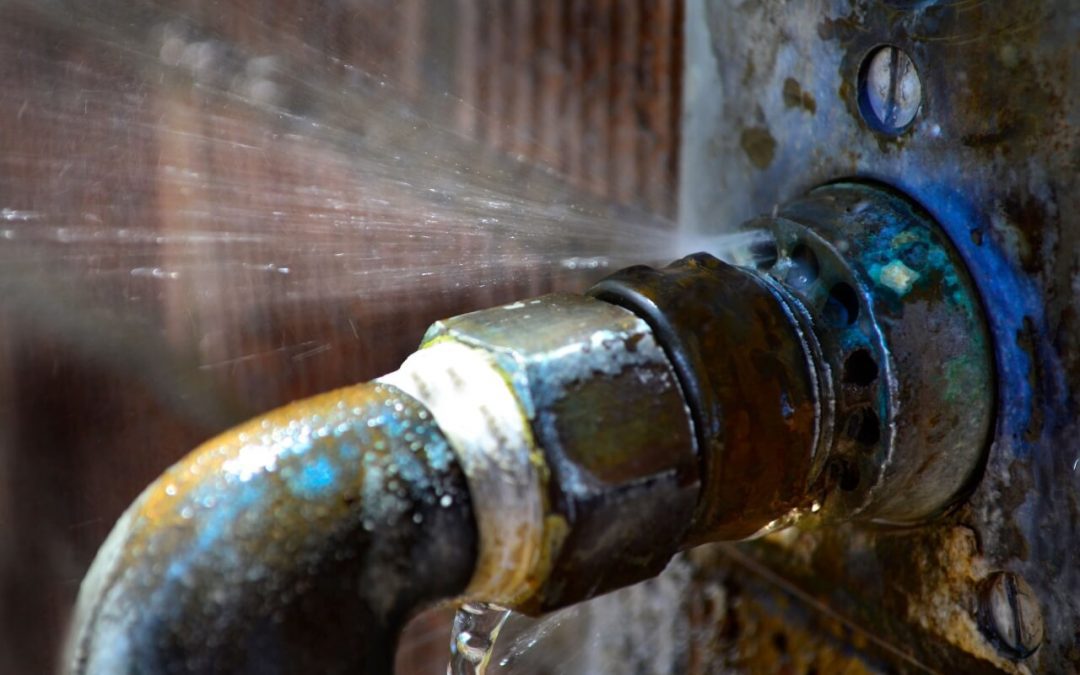
by mwonfor | Dec 9, 2021 | Community, Homeowners, Safe and Healthy Home, Seasonal
The holidays involve decorating, entertaining guests, and cooking delicious meals. While these activities help set a festive mood, they also pose hidden risks. Here are a few tips for safety during the holidays.
Lighting Safety During the Holidays
Conduct a thorough inspection of your lights before hanging them and replace any light strands with damaged cords or bulbs. When changing bulbs, use bulbs with the correct wattage to avoid an electrical problem.
Once you have confirmed the lighting is in good condition, be careful to not overload outlets or extension cords when plugging in lights. Keep children and pets away from light strands to avoid accidents. Finally, when you leave home or go to bed, switch off the holiday lights to help prevent an electrical fire.
Holiday Tree Safety Tips
A freshly cut tree is less susceptible to catching fire. Be sure to water the holiday tree and keep it away from open flames. Place the tree on a stable surface to prevent it from tipping over and causing injury. If you opt to purchase an artificial tree rather than a freshly cut one, make sure it’s labeled as “fire-resistant.”
Cooking Safety During the Holidays
Unattended cooking is a common cause of fires in the United States, and the winter holidays are the peak season for house fires. Prevent a fire by closely monitoring your oven and stove and never leaving the area when food is cooking. Clean spills right away to avoid slips and falls in the kitchen.
Fireplace Safety Tips
Gathering around a fireplace is an excellent way to keep warm and cozy. Make sure the flue is open before starting the fire. Use seasoned wood as fuel. Don’t burn wrapping paper or cardboard boxes in the fireplace. These materials can burn out of control and emit toxic fumes that are harmful to your health. Keep flammable objects like curtains, furniture, and rugs several feet from the fireplace.
Outdoor Safety Tips
Safety during the holidays isn’t limited to inside the house. Take safety measures outdoors, too. Keep the walkways and front porch safe and easy to navigate by shoveling snow and using ice-melt. Doing so will reduce the risk of injuries from falls.
Tips for Home Security
While you’re busy enjoying the holiday, burglars may be watching your home. Deter burglars by keeping curtains closed and bringing packages inside promptly. Use motion-sensing lighting to illuminate the yard after dark.
When you’re away for the holidays, ask a trusted neighbor to monitor your house for suspicious activity. Put the indoor lights on a timer to create the appearance that someone is home. Don’t post announcements online that you’ll be out-of-town. You compromise your home’s safety when you broadcast that it’s unoccupied.
The holidays are a time to relax and enjoy yourself, but it’s important to stay safe and well. Follow these tips for safety during the holidays.
American Home Inspection Services offers home inspections in southeast Michigan. Contact us to schedule our services.

by mwonfor | Nov 11, 2021 | Community, Home Maintenance, Safe and Healthy Home
Every homeowner should be prepared for a power outage. While most outages are usually resolved in a short time, some last hours or even days. In the event of a major storm or accident, power to your home may be interrupted for quite some time. Here are a few tips to help you prepare for a power outage.
Six Things to Do to Prepare for a Power Outage
Assemble an Emergency Kit
If you lose electricity, the last thing you want is to fumble around searching for supplies. Assemble a power outage emergency kit and store it in an easy-to-access location. Some of the items to include are listed below. Inspect your kit frequently and update it as needed.
- Flashlights (one for each person in your household)
- First aid kit
- Necessary medications
- Batteries
- Whistle (to call for help in case of an emergency)
- Battery-powered radio
- Cell phone chargers
Store Plenty of Water to Prepare for a Power Outage
While water shortages are uncommon, they can happen if the power goes out for an extended period over a widespread area. On average, you’ll need one gallon of water per person per day. As a rule of thumb, store enough drinking water to last at least 72 hours. You’ll also want to put aside some water for cleaning and personal hygiene.
Stock Up on Non-Perishable Food
When there’s a prolonged power outage, shoppers may empty store shelves quickly. When you’re prepared, you won’t be stressed about finding essential supplies. Stock your pantry with non-perishable foods. Some excellent products to stow away include:
- Crackers
- Nuts
- Powdered milk
- Canned fish
- Cereal
- Granola bars
- Dried fruit
- Canned soups and vegetables
- Instant coffee and tea
When shopping for non-perishable foods, check their expiration dates. You will be storing them for several months, so it’s best if they’re far from expiring. If you purchase canned goods, make sure to include a can opener in your emergency kit.
Plan for Alternative Lighting
Good lighting is essential for safety and comfort. Be ready for a power outage by keeping alternate light sources on hand. You can purchase items like solar lanterns, LED flashlights, and candles. If you opt for the latter, keep matches or lighters nearby. To stay safe, don’t forget to extinguish candles before going to bed or leaving the house.
Purchase a Generator to Prepare for a Power Outage
A backup power source is an excellent way to prepare for a power outage. Purchase a small indoor generator to power items like your cell phone, computer, tablet, or a few lamps. These are lightweight, easy to carry around, and relatively quiet. However, these must be charged overnight before use and they aren’t very powerful.
On the other hand, gas-powered generators don’t have these drawbacks. They use gasoline or propane and can power many of the appliances in your home. However, this type of generator is bulkier and noisier and must be used outdoors.
Plan to Stay Occupied
Power outages can feel like an eternity and may increase the anxiety of some of your family members. Reduce stress by engaging in fun activities. Along with emergency supplies, be prepared with board games, puzzles, books, and magazines to keep everyone occupied. Activities help reduce anxiety and make the time pass more quickly.
Whether you live in a region prone to power outages or not, it’s essential to be prepared. Plan for a power outage by following the tips above to make the blackout more bearable.
American Home Inspection Services provides inspections to customers in Southeastern Michigan. Contact us to request our services.

by mwonfor | Oct 13, 2021 | Community, Home Buyer
The Challenge of Buying a Home in a Sellers Market
In many areas, the current real estate market favors sellers, as there are more buyers than homes for sale. This gives the seller an advantage in the transaction and many buyers find their offers being rejected amidst the competition. To get the house you want, try these helpful tips to get your offer accepted.
Large Down Payment
If you have the funds to make a large down payment, do so. This shows the seller that you are a financially secure buyer, which will increase the likelihood of closing the transaction.
Cash Offers Will Get Your Offer Accepted
Sellers prefer buyers who can pay cash over those who need a loan from a financial institution. With cash, there is no risk of financing falling through. Paying with cash can speed up the time it takes to close, as there will be no delays waiting on the lender to provide the funds.
Submit an Escalation Clause
An escalation clause states that the buyer will increase their offer above the highest price offered by other potential buyers. When you include an escalation clause, your offer is automatically increased without the need to resubmit a new contract or amend the existing one.
In the event of a bidding war, this keeps your offer at the top of the list. If you want to get your offer accepted, an escalation clause can help you achieve this goal.
Earnest Money
Earnest money is a way of showing the seller that you are serious about purchasing the house. Generally, the earnest money is between 1% to 2% of the selling price, but offering more and waiving contingencies will prove your intent to buy and makes your offer more attractive.
Get Your Offer Accepted by Paying the Sellers’ Moving Expenses
If you’re making an offer on an occupied house, you might offer to pay for the seller’s moving expenses. When you cover the moving expenses, the seller receives an extra financial benefit that is not a part of the sale price. This bonus could tip the scales in your favor.
Close on the Seller’s Terms to Get Your Offer Accepted
Find out from the seller what they would like the contract to include. If they will share this information, you can offer exactly what they want. This makes it more likely for you to get your offer accepted because you’ll include what the seller needs to close on the house.
The real estate market can be extremely competitive, however, these tips give you an advantage over other buyers making offers on the same property.
American Home Inspection Services serves Southeastern Michigan with home inspection services. Contact us to schedule an appointment.

by mwonfor | Sep 13, 2021 | Community, Home Inspection
If you’re buying a home, the smart thing to do is to have it inspected before you sign the purchase and sales agreement. An inspection contingency is a clause in an offer that gives the buyer the right to have an inspection performed within a certain time frame. An inspection can keep you from making a bad investment by buying a home that is in disrepair. If an inspection shows unfavorable results, you have options like canceling the contract or negotiating. To snap up a home quickly, some buyers commit to buying a house with no inspection. Be aware that if you do this, you will be responsible for any repairs that the property needs. Here are 5 risks of waiving a home inspection contingency.
You Might Encounter Serious Structural Issues
Home inspections don’t just tell you about faulty appliances. An inspection can turn up serious structural issues and other kinds of problems that can cost hundreds of thousands of dollars to fix. Keep in mind that many of a home’s most serious problems may not be visible to someone simply walking through. They may only be detectable by an experienced home inspector.
Waiving a Home Inspection Places You in a Weak Negotiating Position
If you forego an inspection, you lose the right to negotiate or get out of the deal if there’s something seriously wrong with the property. If you do have an inspection contingency, you have alternatives such as walking away or asking for a better price.
Long-Term Financial Consequences of Waiving a Home Inspection
If you buy a house without having it inspected and something big comes up, you are on the hook for a lot of money. Big expenses that show up when you are already financially maxed out with your mortgage could drown you in debt. Waiving an inspection has the potential to affect your finances for the rest of your life.
Serious Safety Hazards
Many of the problems that might be uncovered in a home inspection pose more than just financial risks. They threaten the safety of everyone who lives in the home as well. Inspections may reveal carbon monoxide concerns and problems with the home’s wiring that pose electrical and fire hazards. Asbestos, pests, and lead paint are other issues that can make a home dangerous.
A Home Inspection Shows What Preventive Measures to Take
Home inspections just show more than just the immediate and pressing issues. They show areas that can become problems down the road. This information can help you to plan and budget to take steps that prevent expensive problems from developing in the first place.
An inspection can prevent buyer’s remorse for many reasons. Before you invest in a property and move your family into it, you are obligated to find out as much as you can about it. A home inspection performed by a qualified inspector is the best way to protect yourself as a buyer.
American Home Inspection Services serves Southeastern Michigan with home inspection services. Contact us to schedule an appointment.

by mwonfor | Aug 12, 2021 | Community, Home Maintenance, Homeowners
Owning a home involves upkeep and responsibilities, and it can sometimes be challenging to prioritize tasks and chores around the house. Here are a few common concerns of homeowners and what you can do about them to keep your property and family safe.
Home Security
No one wants to face the stress and uncertainly that occurs with a break-in. To minimize the risk of a burglary, make sure your alarm system is functioning correctly. If you haven’t yet installed a security system, begin shopping for options. There are many systems available that can be monitored from your smartphone.
To help prevent theft, look around your property for potential hiding places for an intruder. Make sure the yard is well-lit at night. Install motion-sensing lights above the garage and in the side yard. Keep bushes around the home trimmed so a burglar won’t be able to hide there. Check window and door locks to make sure they’re all functioning properly and don’t forget to lock up every time you leave the house.
Plumbing Leaks are Common Concerns of Homeowners
Plumbing issues can cause water damage and structural concerns. Prevent serious plumbing problems with regular maintenance. Keep a close eye on your water pressure. Homeowners may prefer higher water pressure for showers and other household chores, but when it’s set too high, it strains the pipes and may eventually lead to cracks and leaks. If you are planning to leave town, turn off the water at the main shut-off valve. This will prevent plumbing emergencies while you are away.
Roof Replacement
The roof is a critical component that protects your family, home, and belongings. Roof replacement is a major project, so it’s important to take care of your roofing and help extend its lifespan.
Extreme weather like severe storms and heavy snow can damage your roofing. To minimize this risk, make sure your gutters remain clear. Blockages prevent water from draining away from your home and may cause water to seep under the roofing materials.
Look outside for missing, cracked, or warped shingles and replace them as necessary. If you notice leaks or dark stains on walls and ceilings, hire a professional to inspect the roofing. Repairs may be necessary or it could be time for a full roof replacement.
Electrical Safety
Electrical problems can lead to injuries and even a house fire. Water and electricity don’t mix so make sure your hands are dry before plugging an appliance into the wall. Keep devices away from water sources. This is even true of outdoor appliances and landscaping equipment. If you use an electric leafblower or weedwhacker, don’t use it in the rain and store the tool indoors. Exposure to moisture will shorten the lifespan of many tools and appliances.
Make sure all lamps and light fixtures are fitted with bulbs of the correct wattage to reduce the risk of overheating. Unplug electronics and appliances when not in use to avoid short-circuiting in case of a power surge.
American Home Inspection Services offers home inspections in Southeast Michigan. Contact us to request an appointment.





